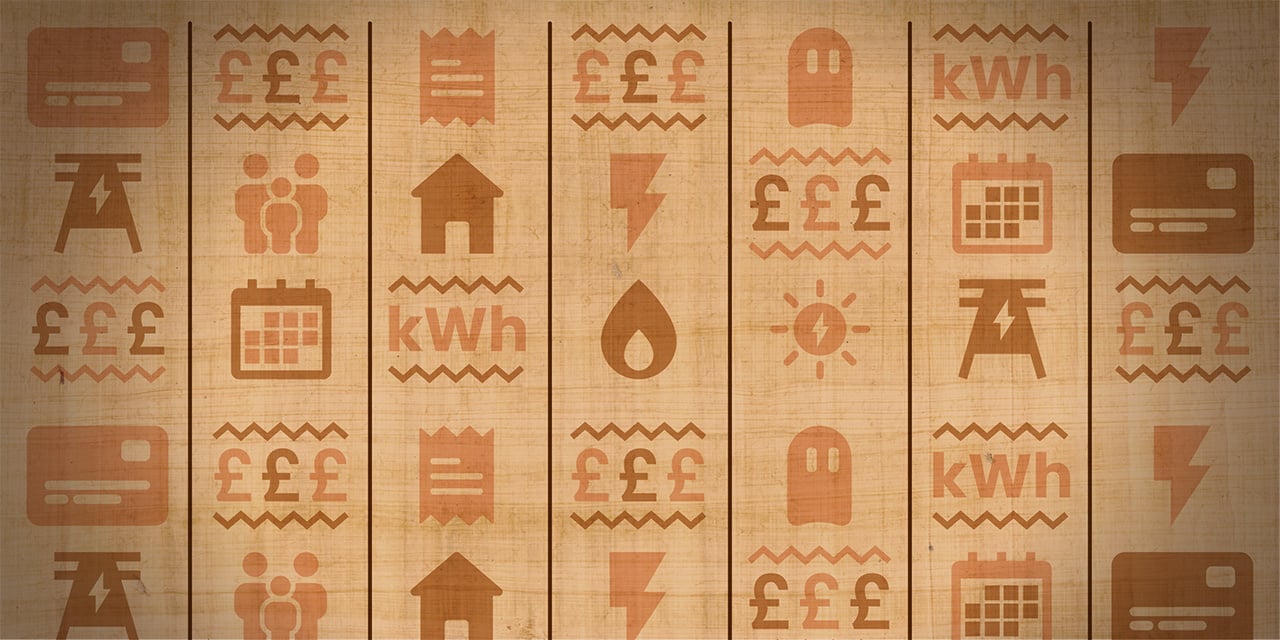How to Read Your Energy Bill
We all want to save money on our energy bills, especially with prices on the rise. But before you dive into making changes, it’s essential to benchmark your energy usage and understand exactly what you’re paying for.
Your energy bill is packed with valuable information that can help you keep track of your energy use and spot any opportunities to save - alongside using an energy-saving tool like the free Loop app.
Let’s break down what you need to know and how to make sure you're not paying more than you should.
Wasted energy makes up 30% of the average energy bill - do something about it! Get more from your smart meter with Loop.
Why Understanding Your Energy Bill Matters
Your energy bill holds the key to unlocking savings. By understanding what’s on it, you can:
- Know how much energy you’re using and what it’s costing you.
- Double-check that you’re being charged the right amount.
- Spot any discrepancies that could lead to overpaying.
In short, it’s your roadmap to taking control of your energy consumption and costs. If you don’t know your starting point, you won’t know be able to set goals and track your progress.
What’s Included on Your Energy Bill?
Energy bills may look different depending on your supplier, but they all share some common details. Here’s what you should keep an eye out for:
- Your Details: Your name, address, and account number.
- Your Tariff: This is the rate you’re paying for energy. It tells you how much you’re charged per unit of energy used, plus any standing charges.
- Energy Usage: The amount of gas and electricity you've used over the billing period (this could be a month, quarter, or year).
- Meter Readings: Your bill will show the gas and electricity meter readings that have been used to calculate your charges.
- Charges Breakdown: A detailed summary of what you owe, including any discounts or extra fees.
Key Checks to Make on Your Energy Bill
Take a moment to check it for any errors. Simple mistakes can lead to overpaying or being charged for energy that wasn’t yours. Here’s what to look out for:
- Correct Name and Address: Make sure the bill is in your name. Also, check that your address and account number are correct.
- Billing Dates: Double-check the dates to ensure the bill only covers the period you’ve been living in the property.
- Meter Numbers: The serial numbers on your bill should match the numbers on your meters.
- MPAN and MPRN Numbers: These are unique identifiers for your electricity and gas supply. They should match the ones on your meters.
If anything looks off, contact your supplier to get it fixed. They’ll send you an updated bill once everything is corrected.

The Importance of Providing Meter Readings
If you don’t provide your energy supplier with regular meter readings, they’ll estimate how much energy you’ve used. One benefit of installing a smart meter is to avoid these manual meter readings. Instead, they get set to your supplier automatically.
Estimated readings can be hit or miss - sometimes you’ll be undercharged, but other times you might end up overpaying. The safest way to avoid billing surprises is to submit accurate readings.
- Overestimated Bills: You might pay more than you need to. However, this becomes credit in your account.
- Underestimated Bills: You could build up a debt with your supplier that you’ll have to pay later.
To keep things accurate, take regular meter readings and send them to your supplier. Most companies let you do this online or via an automated phone line.
How to Take Accurate Meter Readings
It’s easier than you might think! Simply read the numbers on your meter and write them down. You can usually submit them through your supplier’s website or app. If you’re unsure how to read your meter, a quick online search or call to your supplier should clear it up.
Have a smart meter? Good news! Your readings are automatic, though it’s still worth checking your bills to make sure everything lines up.

Moving House? Here’s What You Need to Do
Moving can be a hectic time, but don’t forget to handle your energy bills! Always take final meter readings from your old property and send them to your supplier. This will close your account and ensure you’re not charged for energy used after you’ve left.
When you move into your new home, take readings straight away and give them to the current supplier. Once everything’s set, you can switch to a new energy supplier if you want, but those first readings are crucial for making sure you only pay for the energy you use.
Time to Investigate Your Bill!
Understanding your energy bill is the first step toward taking control of your energy usage. By keeping an eye on your bills, submitting accurate meter readings, and making sure everything checks out, you’ll avoid any nasty surprises and unlock opportunities to save.
Ready to start saving? Take the time to read through your latest energy bill—you might be surprised by what you find! And once you’ve got a handle on your usage, check out our energy-saving tips to see how you can cut your costs even further.
• • •
Cut Your Energy Bill With Loop
Loop is a FREE energy-saving app that links to your smart meter, analyses your energy use and shows you easy ways to save. On average, Loop users cut their energy use by 15%! How much could you save?








